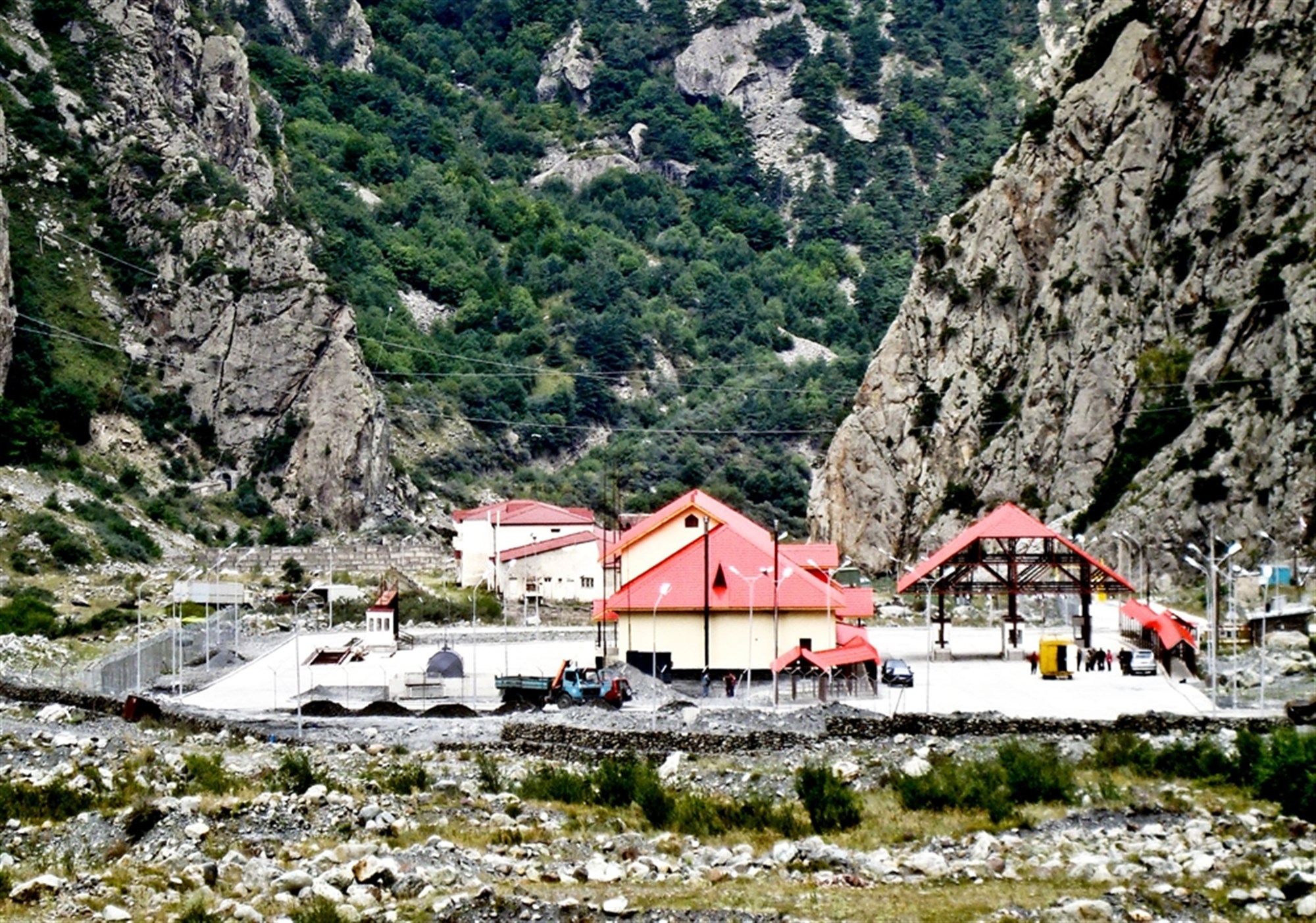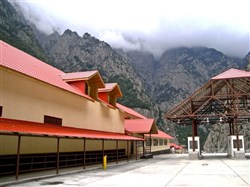TBILISI, Georgia — Celebrated in Russian poetry since the days of the USSR, the "Georgian Military Road" was once a major route between Russia and the Republic of Georgia through the Caucasus Mountains traveled by both invaders and traders throughout the years.
But the days of traversing freely through the mountainous route are coming to a close.
Today, nestled among the highest mountain peaks near the Georgian hamlet of Kazbegi, sits a new, $2.4 million border crossing station recently constructed through the help of the U.S. Army Corps of Engineers Europe District.
"Once the Soviet Union fell and the members split apart you suddenly had all of these borders created with no control," said Wayne Uhl, a program manager with the Europe District.
After five years of construction and a few unexpected challenges, a ribbon-cutting ceremony Sept. 4, saw the handover of the border crossing station to the Georgian government.
The facility is the latest of 18 facilities including three other points of entry funded under the Georgia Border Security and Law Enforcement assistance program, which seeks to provide Georgian law enforcement agencies with communications equipment, surveillance and detection equipment, vehicles, helicopters and other tools needed to impede illegal trafficking of radioactive materials.
"One of the reasons this area was selected was because of the potential of weapons of mass destruction and the materials used for those weapons to move south through the Caucasus to more volatile areas," said Uhl, who works in the District's International Engineering Center. "The U.S. wanted to help stop the potential flow of these dangerous materials."
In addition the new checkpoint will provide more traffic lanes, modern search equipment and offices and barracks for the co-located Georgian Patrol Police and Revenue Service.
But the project was not without challenges.
"There were environmental issues with the weather which caused roads to wash out and rock slides," said Stan Young, a project engineer in the Europe District's Caucasus Project Office. "Then in late August 2008, the Russia/Georgia conflict caused more delays. But in the end, I think the client is happy with the facility."
One of the main contributors to the successful completion of the border station was Young and his untiring pursuit of quality assurance, said Charles Samuel, chief of the Caucasus Project office. He coordinated with the contractor to make sure the project was on budget and within standards or code.
"Stan Young is very forthright and firm with the contractors; at the same time he's flexible when he needs to be," Samuel said. "He brings a wealth of knowledge to the Corps and to my office as well."
For the past nine months, Young has overseen the final quality control for the border station while managing other projects including an eight-lane outdoor pistol range that is expected to be completed in the spring.
"This range is completely for the use of the Georgian police," said Uhl. "What they had here before was completely inappropriate. It was a long distance range for rifles. This pistol range will give them training scenarios that they couldn't train for before."
Neighboring Georgia's new national police academy, which opened in June, the $1 million project is also funded by the Department of Homeland Security's GBSLE program.
"All of our projects are humanitarian projects through the Georgian government and the embassy," said Young. "We're helping them build up their infrastructure and work toward democracy; and it's very rewarding to be a part of that."
And according to James Kelly, chief of party with the GBSLE program, the government has been very satisfied with the progress.
"I always enjoy working with the Corps," Kelly said. "They are very professional and even though there were some delays [with the border crossing station], I'm very happy with the end product. It's beautiful and will be extremely functional."









